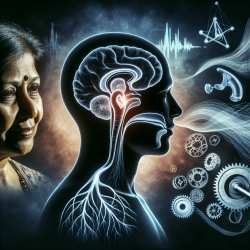Introduction
Celiac disease (CD) is a chronic autoimmune disorder triggered by the ingestion of gluten, affecting approximately 1.4% of the global population. The disease leads to damage in the small intestine, causing a range of symptoms including abdominal pain, bloating, and nutrient malabsorption. This can result in various health complications, including nutritional deficiencies and mental health issues. The only effective treatment for CD is a strict gluten-free diet (GFD). However, adherence to this diet can be challenging due to the risk of cross-contamination and the presence of gluten in unexpected foods.
Global Approach to Celiac Disease Follow-Up
Recent research, as highlighted in the article "Global Approach to Follow-Up of Celiac Disease," suggests a comprehensive approach to managing CD, which includes clinical, nutritional, psychological, and social perspectives. This approach aims to improve the quality of life for individuals with CD by addressing the multifaceted challenges they face.
Clinical Perspective
From a clinical standpoint, monitoring dietary adherence and symptomatology is crucial. Studies indicate that a significant number of CD patients do not fully adhere to a GFD, which can lead to ongoing intestinal damage. Combining dietary questionnaires with objective techniques such as biomarker detection can provide a more accurate assessment of dietary adherence and intestinal health.
Nutritional Perspective
Nutritional balance is essential for individuals on a GFD, as nutritional deficiencies are common among CD patients. A personalized nutritional follow-up led by dietitians can help ensure that patients meet their dietary needs while avoiding gluten. Tools like the GlutenFreeDiet platform can assist dietitians in evaluating and designing balanced GFDs.
Psychological Perspective
CD is associated with an increased risk of psychological disorders, including depression and anxiety. Psychological assessments and support can help individuals manage these challenges and improve their quality of life. A team-based treatment approach, including psychologists, can provide essential coping skills and social support.
Social Perspective
Social inclusion is vital for individuals with CD, who often face challenges when eating outside the home. Educating the general public and catering staff about CD and GFDs can improve social integration and reduce feelings of isolation. Educational activities aimed at increasing awareness can promote a more supportive environment for individuals with CD.
Conclusion
A holistic approach to CD management, incorporating clinical, nutritional, psychological, and social perspectives, can significantly enhance the quality of life for individuals with CD. Practitioners are encouraged to adopt these strategies and consider further research to continue improving outcomes for CD patients.
To read the original research paper, please follow this link: Global Approach to Follow-Up of Celiac Disease.










